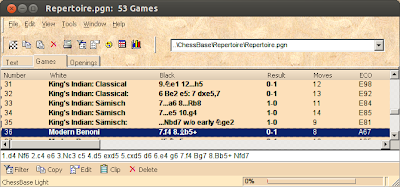From wired.com : Chess Boxing Demands a Rare Breed of Human: The ‘Nerdlete’
“What makes a better chess boxer, a boxer who can think strategically or a chess player who can throw a punch?
The rules in chess boxing are simple. There are 11 rounds and players alternate between boxing and chess. The boxing rounds last three minutes and the chess rounds last four. You win by knockout or checkmate. If neither of those is achieved, the boxer with the highest number of points wins.
Chess boxing partly appeals to the same white-collar people who are drawn to things like fight clubs — mild-mannered professionals that need to let out their angst.”
From NPR : Chess for Success
You can either listen to the 12min podcast with GM Maurice Ashley here or read the transcript here. Its funny!
“The “Frankenstein-Dracula,” the “King’s Indian” and the “Fried Liver” are all famous ways to do what? As this week’s V.I.P., International Grandmaster of chess Maurice Ashley, knows, they’re all strategies to begin a chess match. In this episode, Ashley divulges his own chess-playing strategy that combines Zen-like meditation with CIA-like mind games.”
From chessprofessionals.org : ACP Tournament of the Year
Not sure if tournament organizers have any incentive to figure their tournament in this list, but its a good start and hopefully will improve the quality of tournaments; for players, spectators and the fans worldwide.
“ACP Tournament of the Year 2012 Tata Steel Chess, Wijk aan Zee
Best Round Robin event of 2012: Tata Steel Chess, Wijk aan Zee
Best Open event of 2012: Tradewise Gibraltar Festival
Best official event of 2012: World Chess Championship Match Anand-Gelfand, Moscow”
From chessbase.com : A Game of Chicken: Ivanov rides again
The controversy just doesn’t seem to die. In fact, this will not be the last, till some tighter controls are in place.
“In the last weeks of 2012 he wowed the chess world with a 2700 performance. Two months later the new Bulgarian star FM Borislav Ivanov finished 88th in the Plovdiv, this time with a performance of 1970. Then came another enviable achievement, a clear win at the Villava rapid (again with a 2700 performance). What is going on? Alex Karaivanov speculates, with new video analysis by Valeri Lilov.”
From BBC : A Point of View: Chess and 18th Century artificial intelligence
A different point of view!
“Now, the Turk fascinates me for several reasons. First, because it displays an odd, haunting hole in human reasoning. Common sense should have told the people who watched and challenged it that for the Turk to have really been a chess-playing machine, it would have had to have been the latest in a long sequence of such machines. For there to be a mechanical Turk who played chess, there would have had to have been, 10 years before, a mechanical Greek who played draughts.”



























